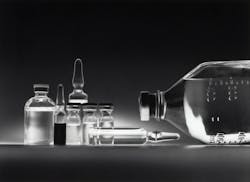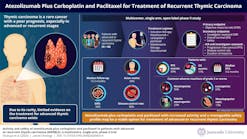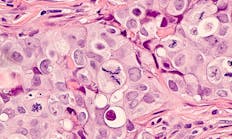A team from Mayo Clinic and Harvard University developed a new ionic liquid formulation that killed cancer cells and allowed uniform distribution of a chemotherapy drug into liver tumors and other solid tumors in the lab. This discovery could solve a problem that has long plagued drug delivery to tumors and provide new hope to patients with liver cancer awaiting a liver transplant, according to a news release from the Mayo Clinic.
The preclinical study results are published in Science Translational Medicine.
The researchers developed an ionic liquid — essentially salt in a liquid state — as an alternative way to deliver drugs into tumors through an ultrasound-guided needle injection. Once injected, they say the ionic liquid deposited the chemotherapy drugs uniformly, killing the cancer cells as the liquid engulfed the tumors.
The researchers reported this approach was successful in preclinical studies using freshly resected human tumors in the lab and liver tumors in animal models. In addition, the authors report that the chemotherapy remained in the targeted zone for the length of the 28-day trial.
Whereas, drugs often wash away quickly from direct injection into tumors or from standard IV delivery of chemotherapy through the veins of the arm, the ionic liquid, which the authors call a "locally active agent for tumor treatment and eradication," or LATTE, also encouraged immune cell infiltration in the microenvironment of the tumor. This may play a role in achieving immunotherapy in solid tumors. The researchers say this could solve current challenges, especially in hepatocellular carcinoma ― the most common form of liver cancer ― where liver transplant can be curative.





